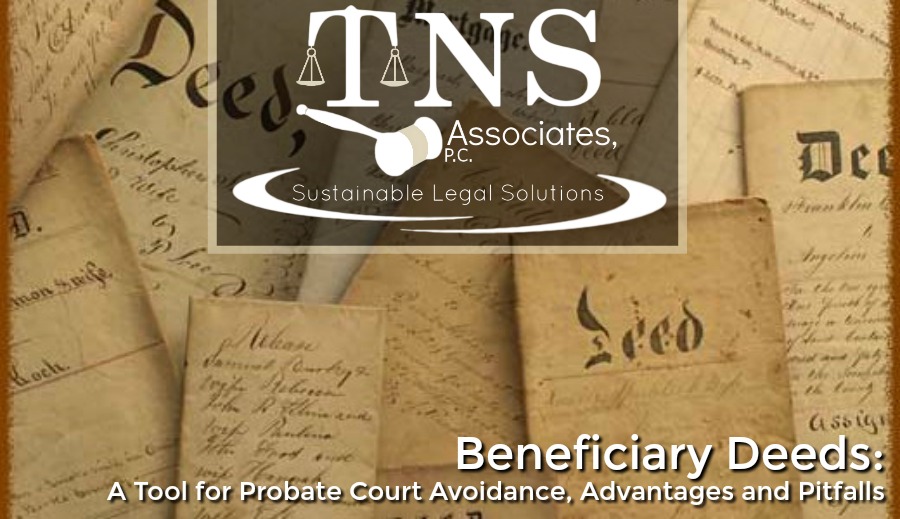Beneficiary Deeds: A Tool for Probate Court Avoidance, Advantages and Pitfalls

Although Beneficiary Deeds have been in existence in Colorado since 2004, many people, including practitioners, are not familiar with the mechanics of how they work and the potential advantages and disadvantages. Originally, the Beneficiary Deed statute was intended to provide a means of transferring title to real property to a grantee-beneficiary upon the death of the owner without the need for probate court administration. In addition, the statute was intended as a means to add real property to an existing trust or other entity used to title real estate, such as a family limited partnership, limited liability company or corporation upon the death of the owner.
Key Features of Beneficiary Deeds:
-
For the deed to take effect at death, the owner must complete, execute and record the Beneficiary Deed in the real estate records of the proper county before death, or the grantee-beneficiary will not receive the property interest at the death of the owner.
-
The beneficiary designation is revocable and may be changed by the owner at any time during his or her lifetime without the consent or joinder of the named grantee-beneficiary.
-
The owner is to have the freedom to deal with the property as he or she sees fit during the owner’s lifetime without the need for the grantee-beneficiary to join in any transaction that may affect the title to the property.
-
The grantee-beneficiary has no property interest until the death of the owner.
-
If the owner wants to revoke the Beneficiary Deed, he or she must record either a new Beneficiary Deed naming a new grantee-beneficiary or a separate revocation form. The owner’s Last Will and Testament cannot alter, amend or revoke the Beneficiary Deed.
-
The Beneficiary Deed is an incomplete gift since the owner retains full use of the property with a power to revoke. Therefore, for gift tax purposes, a gift does not occur upon execution of the Beneficiary Deed. In addition, the property receives a full step-up in basis upon the death of the owner.
